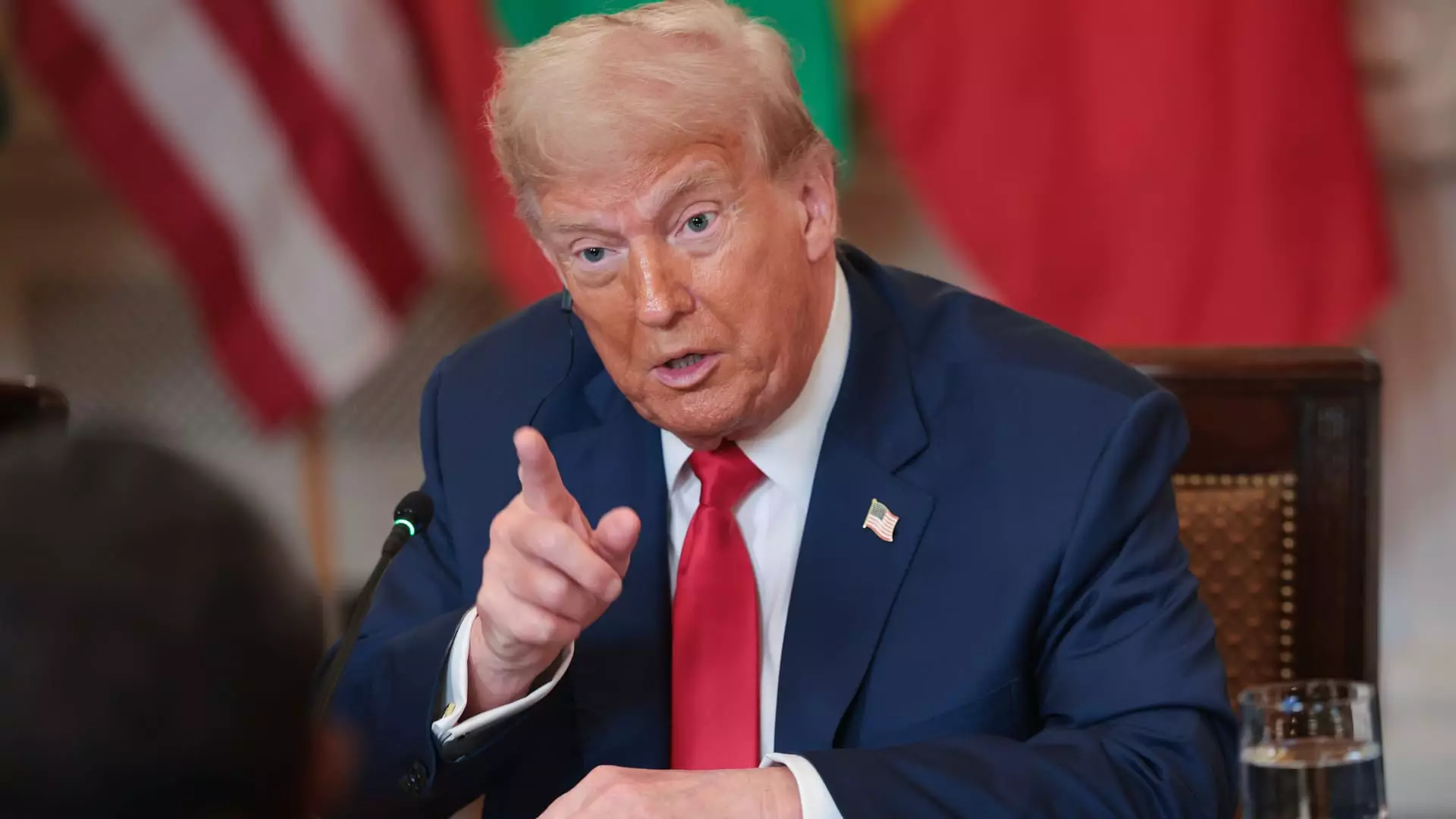In a provocative and deeply divisive move, former President Donald Trump has announced a staggering 50% tariff on Brazilian imports, ostensibly as a response to Brazil’s internal political developments and trade practices. This decision reveals not only a troubling misunderstanding of international economics but also an alarming tendency to wield tariffs as tools of ideological retribution rather than strategic diplomacy. Imposing such a crippling tariff, ostensibly in retaliation for Brazil’s prosecution of Jair Bolsonaro and internal political disputes, threatens to destabilize an already delicate global economy.
This kind of heavy-handed tariff policy is rooted in a misguided belief that trade relationships can be manipulated to serve personal or political objectives rather than serving the broader interests of economic stability and international cooperation. It disregards the notion that trade should be based on mutual benefit, not unilateral punishment. Using tariffs to influence internal political affairs of a sovereign nation is a dangerous precedent—one that elevates nationalism and protectionism over stable international partnerships.
Ignoring the complexities of economic interdependence, Trump’s decision demonstrates a lack of nuanced understanding. Brazil’s current account surplus with the U.S. of over $7 billion signifies a balanced trade dynamic. Tariffs, in this context, risk retaliation, disrupting supply chains, and igniting a spiral of trade barriers that benefit no one in the long run. Such policies are driven more by political posturing than sound economic strategy, highlighting a concerning tendency among nationalist leaders to weaponize trade for short-term political gains.
Moving Beyond Fairness: The Cost of Political Ideology in Global Trade
Trump’s rhetoric frames the tariff hike as a punitive measure for Brazil’s recent legal and political setbacks, especially the ongoing prosecution of Bolsonaro. Framing internal judicial processes of foreign nations as justification for tariffs is perilous. It implies that international trade can—or should—be contingent on perceived political health, an approach that undermines the sovereignty of nations and chips away at the foundation of global diplomacy.
Furthermore, accusations of unfair trade practices around “digital trade” and claims that Brazil’s policies threaten U.S. economic security are, at best, exaggerated or misrepresented. While U.S.-Brazil trade relations are complex, they are far from the level of strife Trump portrays. The observation that tariffs might be modified based on future political considerations echoes a troubling tendency to view international relations through a transactional lens, where reciprocity is dictated by short-term political whim rather than long-term strategic interests.
The broader danger lies in the precedent such policies set. If tariffs are weaponized as punishment for internal political disputes rather than economic violations, the global trade system risks descending into chaos. Countries will become less willing to cooperate, fearing that their internal political disputes could trigger economic retaliation. This creates an environment of endemic instability and unilateralism that flies in the face of the liberal international order that truly fosters sustainable growth.
The Illusion of Power and the Reality of Economic Harm
Trump’s tariffs, particularly at a level as extreme as 50%, reveal a profound disconnect from the realities of global supply chains. In an interconnected era, such measures are rarely contained within borders—they ripple across industries, inflating costs, causing inflationary pressures, and ultimately harming consumers and businesses alike.
The claim that these tariffs are necessary to “rectify injustices” is fundamentally flawed. The economic data indicates that the U.S. maintains a healthy trade surplus with Brazil, contradicting the justification that tariffs are needed to address trade deficits. Instead, these actions serve more to cater to a domestic political base hungry for perceived displays of strength than to foster genuine economic fairness.
More insidiously, Trump’s move valorizes a zero-sum view of international trade, ignoring evidence that cooperation and mutual benefit lead to more stable and prosperous relations. His rhetoric about “unsustainable trade deficits” and threats of escalation resemble a fragile power dynamic rather than a rational approach to economic policy. This reckless pursuit of dominance ultimately risks alienating allies and provoking retaliatory measures that threaten the stability of global markets.
A Center-Left Perspective on Balanced and Pragmatic Trade Policies
From a centrist, liberal perspective, the approach to international trade must balance sovereignty with global responsibility. It’s imperative to resist the temptation to view trade as a battlefield where political disputes justify economic punishment. Sound policy should prioritize multilateral institutions, enforce fair practices through established rules, and seek dispute resolution over unilateral tariffs.
Moreover, economic relations should be sustained by mutual respect and a shared commitment to fairness, not retribution. The danger with Trump’s tariff strategy is that it chips away at this foundation, sowing distrust and instability. Instead of viewing allies and trading partners as adversaries to be punished, leaders should leverage diplomacy, promoting rules that enhance digital trade, protect intellectual property, and ensure fair competition. These are the truly constructive paths to economic strength and international credibility.
It’s tempting to see tariffs as simple tools of assertion, but history demonstrates they are often boomerangs—harmful to the initiator more than to the target. A more judicious approach capitalizes on engagement rather than isolation. It’s time for policymakers to reject the illusion that economic coercion can replace genuine collaboration, especially in a world where interdependence is an unavoidable reality. The integrity of international trade depends on rational, transparent, and just policies—not political grandstanding cloaked in the guise of defending national interests.

